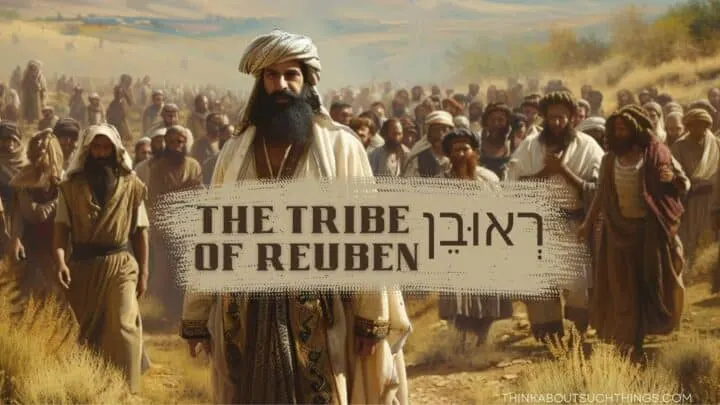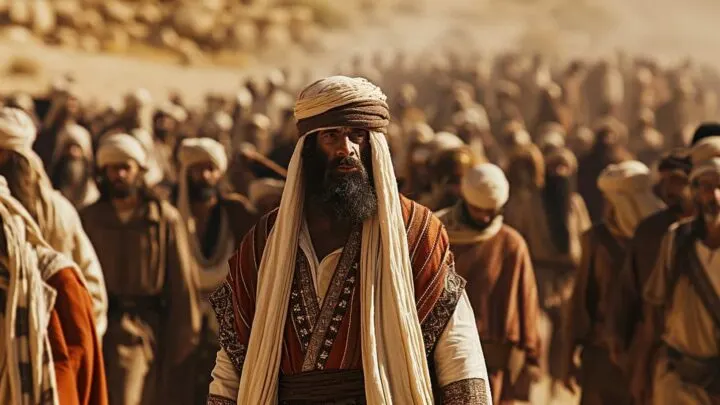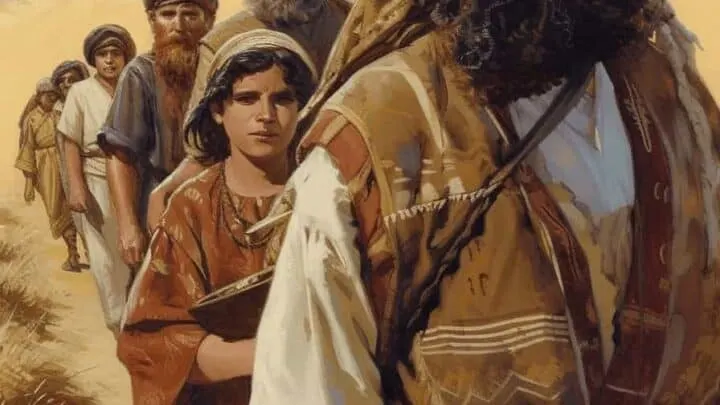The Bible is like a treasure hunt that never gets old. You can keep flipping those pages, and there’s always some hidden gem waiting to be discovered, especially in those passages that might seem a bit meh at first. We often brush off the tribes of Israel like, “What’s the deal? How does this ancient tribe stuff relate to my life?”
But surprise, surprise! Those tribes still pack a punch of relevance. They’ve got some life lessons for us, believe it or not.
And one tribe that rocks the biblical stage is the tribe of Levi. So, grab your Bible, chill, and let’s dig into who they were and what made them stand out. It’s a trip worth taking!
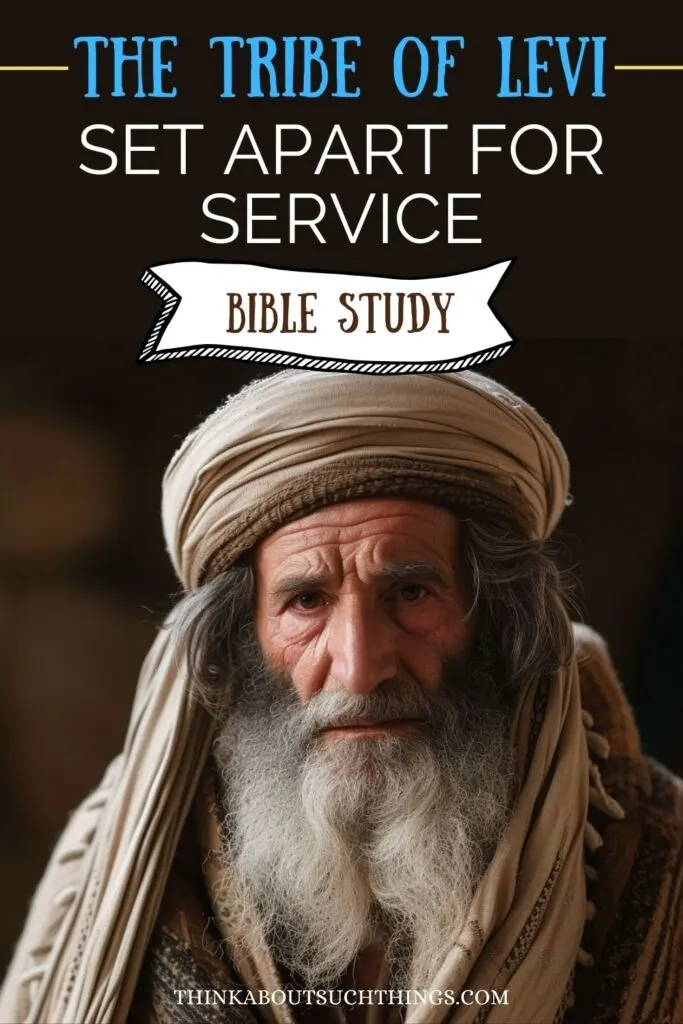
Origin of the Tribe of Levi
Levi was Jacob’s third-born son. Genesis 29 tells us how Jacob married Laban’s two daughters, Leah and Rachel. He did not love Leah, but Laban deceived him into marrying her first.
Verse 31 tells us that God saw Leah’s pain in the fact that her husband did not love her, so He opened her womb and gave her sons while Rachel remained barren for a while. The first was Reuben, followed by Simeon, Levi, and finally Judah.
The name “Levi” comes from the Hebrew word “leviy” (Strong’s number H3878), which means “attached.”
לֵוִי Lêvîy, lay-vee’; from H3867; attached; Levi, a son of Jacob:—Levi. See also H3879, H3881.
Leah gave him that name because she believed Jacob would finally be attached to her after she gave him three sons. The relevance of the name will become apparent soon.
Jacob had eight more sons born by Rachel, Leah, and their servants. These twelve sons eventually became what would be known as the patriarchs of the twelve tribes of Israel, each tribe named after its patriarch.
Jacob Blessing Levi
Genesis 49 tells us about one of the most significant moments that would affect the futures of all twelve tribes, including Levi.
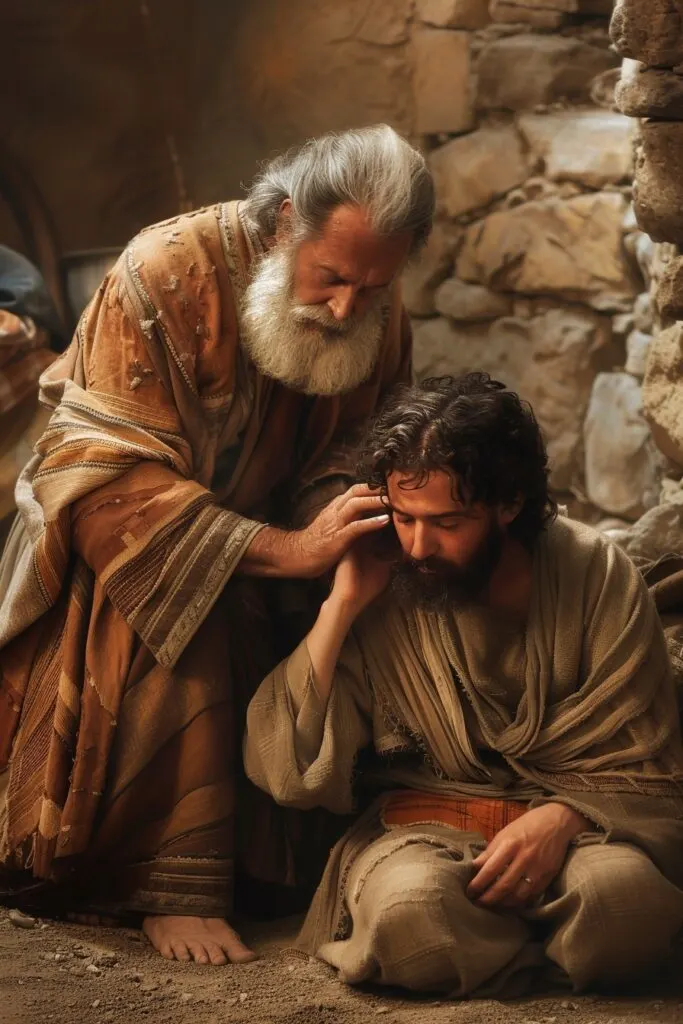
Jacob and his family moved to Egypt during a famine after God had placed Joseph in a position of influence. Jacob was already old when this happened, and just before he passed away in Egypt, he called his sons together to make certain pronouncements over them.
We call these the “blessings” of Jacob, but not all the pronouncements were positive.
Verses 5 to 7 tell us what Jacob said about Levi and his older brother Simeon:
“Simeon and Levi are brothers; weapons of violence are their swords. Let my soul come not into their council; O my glory, be not joined to their company. For in their anger they killed men, and in their willfulness they hamstrung oxen. Cursed be their anger, for it is fierce, and their wrath, for it is cruel! I will divide them in Jacob and scatter them in Israel.”
This portion refers to Genesis 34. A young man called Shechem raped Dinah, the sister of Levi and Simeon, then wanted to marry her.
Jacob’s sons decided to take revenge by fooling Shechem’s father into circumcising all his men. While the men were recovering from the circumcision, Levi and Simeon took revenge by killing all of Shechem’s people.
Note that Jacob did not curse his sons; he cursed their anger. If they were to repent from their anger and take control of their emotions, they would no longer be under the curse.
The Tribe of Levi
Over the years, these twelve families grew into twelve tribes.
We don’t know much about the tribe of Levi during their time in Egypt. Still, many scholars believe they were excluded from the hard labor the other tribes endured and permitted to devote themselves to spiritual work and encouraging the other Israelites.
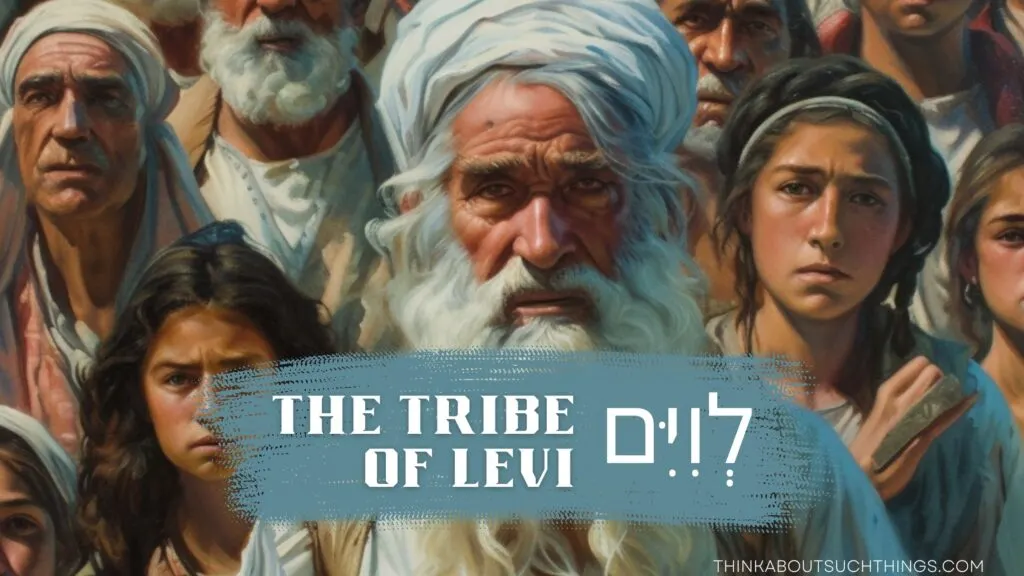
| Event | Description | Reference |
|---|---|---|
| Birth of Levi | Third son born to Jacob and Leah | Genesis 29:34 |
| Dinah incident | Levi and Simeon kill Shechemites in revenge | Genesis 34 |
| Jacob’s blessing | Levi cursed for his anger | Genesis 49:5-7 |
| Golden calf incident | Levites kill idolaters on Moses’ command | Exodus 32 |
| Establishing priesthood | Levi set apart for service to God | Exodus 32:29 |
| Entry into Promised Land | Levi given cities but no land inheritance | Joshua 18:7 |
| Samuel | Levite who anointed Saul and David as king | 1 Chronicles 6 |
| Jeremiah | Levite prophet who warned of coming wrath | Jeremiah 1 |
| Ezra | Led effort to rebuild temple in Jerusalem | Ezra 7 |
Moses, Aaron, and Miriam
Probably the three most famous people from the book of Exodus, namely Moses, Aaron, and Miriam, were from the tribe of Levi.
Of course, just about everyone knows how these three worked together under Moses’ leadership to free Israel from slavery and take God’s people to the promised land.
Moses was the leader, chosen by God to set His people free. Aaron was Moses’ right-hand man and spokesperson, and Miriam was a trusted advisor and influential speaker among the people.
The Founding of the Priesthood
Exodus 32 tells us how Israel became impatient while Moses was up on the mountain receiving the law from God.
They told Aaron to make them a physical representation of God because they thought Moses had died or abandoned them. Aaron obliged and used gold to make them a golden calf, which Israel worshiped until Moses came down from the mountain.
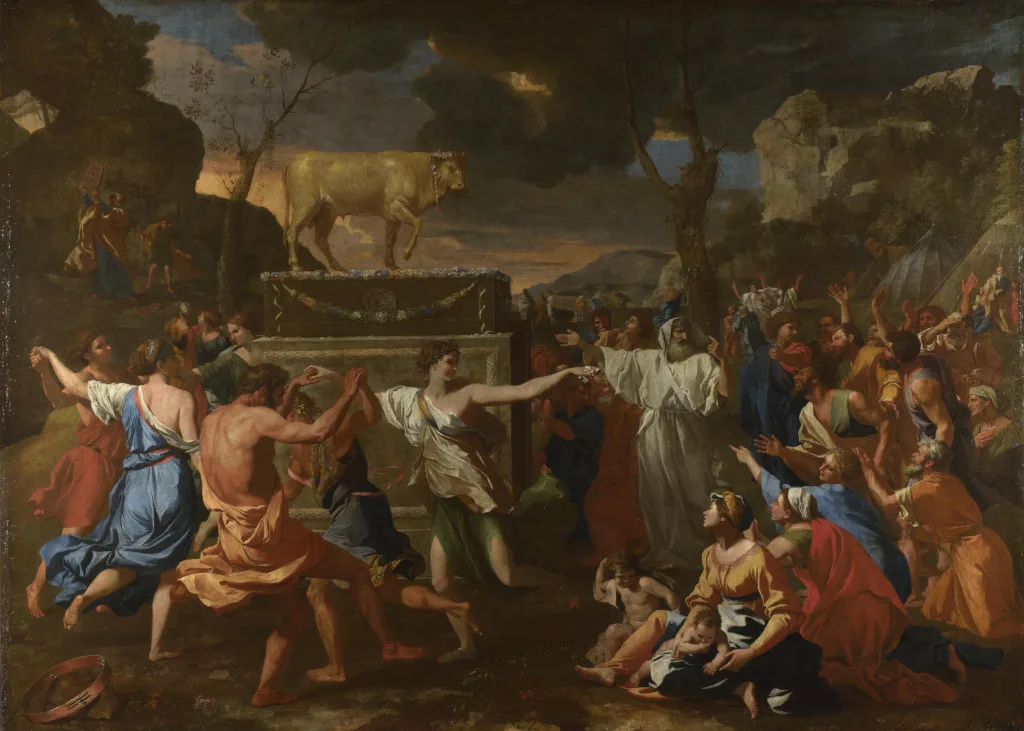
The Adoration of the Golden Calf
In verse 26, Moses asks for anyone who is still on God’s side to come to him, and it was the tribe of Levi who went up to Moses. They had not abandoned God while the rest of the nation sinned.
Moses instructed them to take their swords and kill those responsible for the sins of the people.
“And Moses said, ‘Today you have been ordained for the service of the LORD, each one at the cost of his son and of his brother, so that He might bestow a blessing upon you this day.’” Exodus 32:29
This event had far-reaching implications!
- First, we see how Jacob’s words about Levi being a man of the sword came into play here. However, things were different this time: the Levites hadn’t taken out their anger on the people; they were executing God’s judgment and instruction. They had proven that their anger was under control and their swords belonged to the Lord alone.
- Secondly, the name Levi received its whole meaning. The tribe became attached to God in a way that the other tribes weren’t, called and ordained to serve Him as no other tribe could.
How the Tribe Functioned
After their calling, and as Moses established Israel’s laws and worship, the Levites became instrumental in the entire process.
They were called to serve in the Tabernacle (and, later, the temple). Some served as priests, mainly the sons of Aaron, and Aaron himself became the high priest.
The other Levites had to take responsibility for the needs of the Tabernacle, including assembling, moving, and disassembling it as Israel traveled through the desert. Some also sang or played music during worship.
When they entered the promised land, the tribe of Levi did not inherit any of the land. According to Joshua 18:7, the tribe did not inherit land because the priesthood of God was their inheritance. They did receive cities, though.
Most of the Levites’ cities became dedicated cities of refuge, where people who were accused of manslaughter could be safe from the victim’s relatives. The accused could live with the Levites, who would hopefully inspire them to become more spiritual and devout.
The other tribes were also instructed to pay tithes to the priesthood to support them as they ministered.
Notable Levites
Interestingly, Jesus came from the tribe of Judah, not Levi. But even though Jesus is our High Priest (Hebrews 4:14-16), He is also the King of kings and the Lion of the tribe of Judah.
But we can find many other notable Levites throughout the Old Testament:
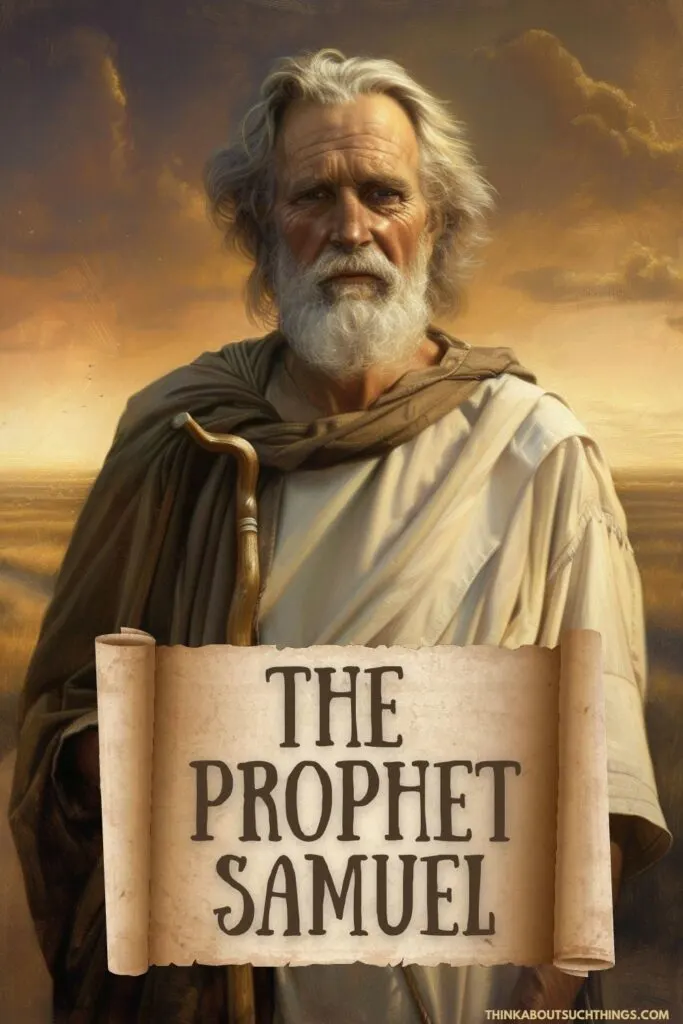
- The prophet Samuel.
He was a Levite according to 1 Chronicles 6:33-38. He was one of the greatest prophets, able to prophesy things with incredible accuracy (1 Samuel 10). He also anointed the first two kings of Israel, namely Saul and David, as God instructed him to do. - Jeremiah, Ezekiel, and Malachi.
All three were great prophets who called the people of Israel to repentance and told them about the wrath of God that would come if they didn’t repent. But they also talked about the coming Messiah and the hope He would bring. - Ezra.
After Israel’s time in Babylon, Nehemiah felt the call of God to return to Israel and rebuild the walls of Jerusalem.
This calling was mirrored in the heart of Ezra, a Levitical priest who wanted to restore the temple so God’s people could worship Him as they should. He did so amid plenty of opposition, which in turn encouraged Nehemiah’s builders to continue building.
The Relevance of the Tribe of Levi
We, as believers, can learn much from the Levites. No, we don’t have priests as the Israelites did. We have one High Priest, and that’s Jesus Christ (Hebrews 4). But some of the lessons we can take from Levi are:
- Don’t let your emotions control you. Overcome them, then use them to serve God, not yourself.
- Keeping yourself separate from the world is a good thing. The tribe of Levi wasn’t “special” when Israel worshiped the golden calf, but they kept themselves separated from what the people were doing. It was a choice and probably not the popular one at the time. But God rewarded them for their vigilance.
- A total commitment to God will do incredible things in and through you. Some of the greatest prophets were Levites living in complete surrender to God.
- Your commitment to God will require you to serve others. We can see this in Jesus’ life, too. When you’re committed to God, everything you do is meant to serve Him, which often means serving other people (Matthew 25:45). This could mean meeting their physical needs, preaching the gospel, or encouraging them. Whatever you do, do it to honor God.
The tribe of Levi was doomed to be cursed by its patriarch. That’s not the most fantastic start for any family.
But through perseverance and commitment to God, the people overcame the curse and the anger that caused it, and they were rewarded by becoming a tribe dedicated to God and serving Him in a unique way.
This applies to us, too. 1 Peter 2:9 says that we are chosen people, a royal priesthood, and God’s own possession.
That sounds very much like the calling of the Levites. But it also means we must work to overcome our sinful nature and reliance on our physical and emotional needs and live in total and complete surrender to God, trusting that He will take care of the rest.
The Tribes of Israel
Unlock the fascinating histories & profound legacies of the 12 Tribes of Israel in our epic Bible study series! From Reuben's birthright to Levi's priestly roles, Judah's kings to Joseph's prominence - explore in-depth the unique paths, impacts & symbolic meanings of each tribe.
Gain revelatory insights into their conquests, failings, blessings & destinies across this comprehensive journey through Scripture. Prepare to have your understanding of Israel's tribes forever transformed!
The Tribe of Reuben: The Rise and Fall of the Firstborn
Uncover the untold story of Reuben, Jacob's firstborn son & founder of one of the 12 tribes of Israel. Our in-depth Bible study explores Reuben's life, legacy & what went wrong that cost him his birthright. Gain profound insights into this misunderstood tribe's history.
The Tribe of Simeon: The Fierce and Fatal Son
Unravel the mysteries of the often overlooked Tribe of Simeon in our comprehensive Bible study. Explore their conquest of Canaanite cities, dispersal among Judah's territory, and ultimate absorption. Gain eye-opening insights into this tribe's complex history and legacy.
The Tribe of Issachar: Navigating the Times & Seasons
Learn the profound wisdom of the Tribe of Issachar, celebrated for their deep understanding of the Torah. Our enlightening Bible study reveals their role as renowned teachers of the law and brave warriors. Discover the inspiring legacy of this remarkable tribe.

Melissa is a passionate minister, speaker and an ongoing learner of the Bible. She has been involved in church and vocational ministry for over 18 years. And is the founder of Think About Such Things. She has the heart to equip the saints by helping them get into the Word of God and fall more in love with Jesus. She also enjoys family, cooking, and reading.
She has spoken in churches in California, Oregon, Texas, and Mexico and has been featured in Guidepost Magazine and All Recipes Magazine. Read More…

